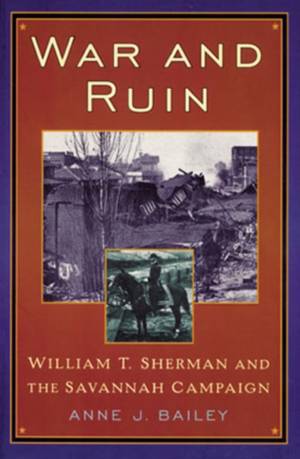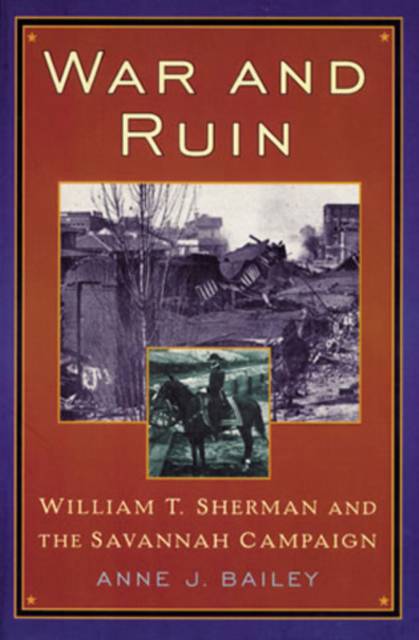
- Retrait gratuit dans votre magasin Club
- 7.000.000 titres dans notre catalogue
- Payer en toute sécurité
- Toujours un magasin près de chez vous
- Retrait gratuit dans votre magasin Club
- 7.000.0000 titres dans notre catalogue
- Payer en toute sécurité
- Toujours un magasin près de chez vous
124,45 €
+ 248 points
Format
Description
'I can make this march, and make Georgia howl.' -William Tecumseh Sherman The 'March to the Sea' shocked Georgians from Atlanta to Savannah. For the first time, suffering and carnage came to their very doorsteps in the form of 60,000 battle-hardened Union troops led by General William Tecumseh Sherman. In the late autumn of 1864, as his troops cut a four-week long path of terror through Georgia, Sherman accomplished his objective: to destroy civilian morale and with it their support for the Confederate cause. His actions elicited a passionate reaction as tales of his dastardly deeds and destruction burned Sherman's name into the Southern psyche. He became the ruthless personification of evil, an arch villain who made war on innocent women, children, and old men. But does the Savannah Campaign deserve the reputation it has been given? And was Sherman truly this brutal? In her new book War and Ruin, Anne J. Bailey examines this event and investigates just how much truth is behind the popular historical notions. Because Sherman's dash through Georgia was so terrifying, it left an indelible impression on the people who were unlucky enough to be in the Union army's way. Bailey contends that the psychological horror rather than the actual physical damage-which was not as devastating as believed-led to the wilting of Southern morale. This dissolution of resolve helped lead to ultimate Confederate defeat as well as to the development of Sherman's infamous reputation. Although he rarely carried out his threats to the South in full, Sherman's thunderous rhetoric nevertheless would resonate through the generations. War and Ruin looks at the 'March to the Sea' from its inception in Atlanta to its culmination in Savannah. This fascinating text is a chronicle of not just the campaign itself, but also a revealing description of how the people of Georgia were affected. War and Ruin brilliantly combines military history and human interest to achieve a convincing portrayal of what really happened in Sherman's epic effort to smash the Confederate spirit in Georgia.
Spécifications
Parties prenantes
- Auteur(s) :
- Editeur:
Contenu
- Nombre de pages :
- 152
- Langue:
- Anglais
- Collection :
Caractéristiques
- EAN:
- 9780842028509
- Date de parution :
- 01-10-02
- Format:
- Livre relié
- Format numérique:
- Genaaid
- Dimensions :
- 155 mm x 242 mm
- Poids :
- 449 g

Les avis
Nous publions uniquement les avis qui respectent les conditions requises. Consultez nos conditions pour les avis.






